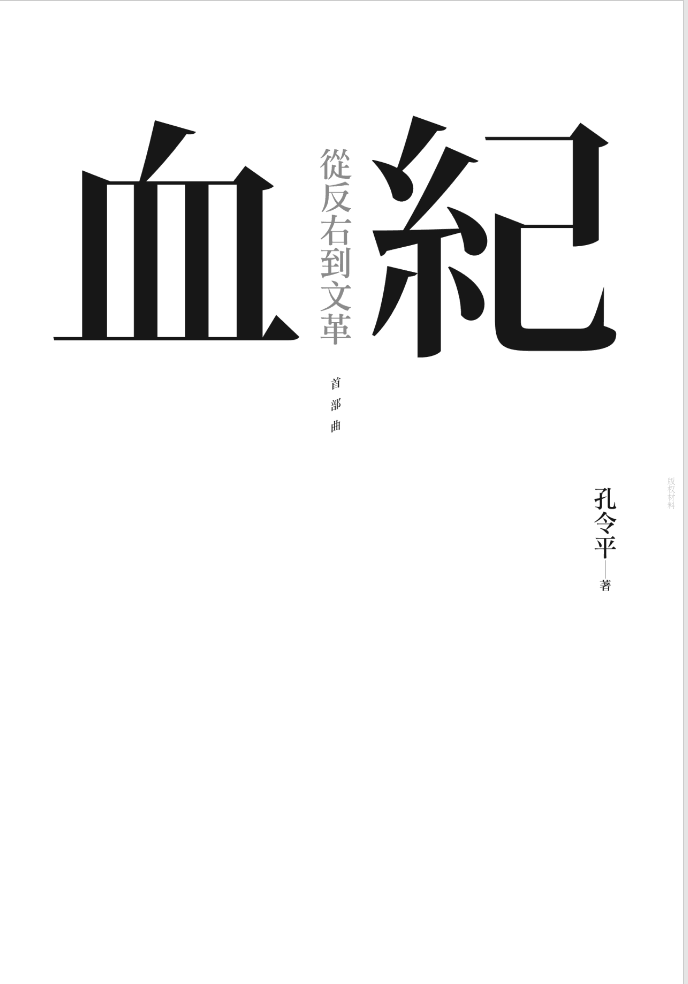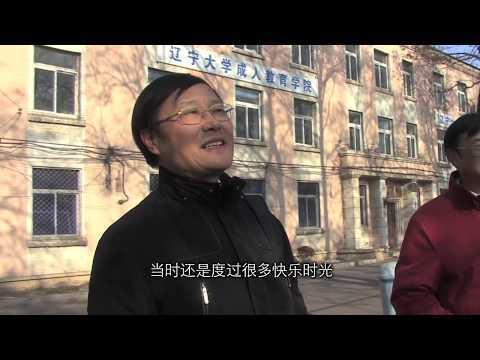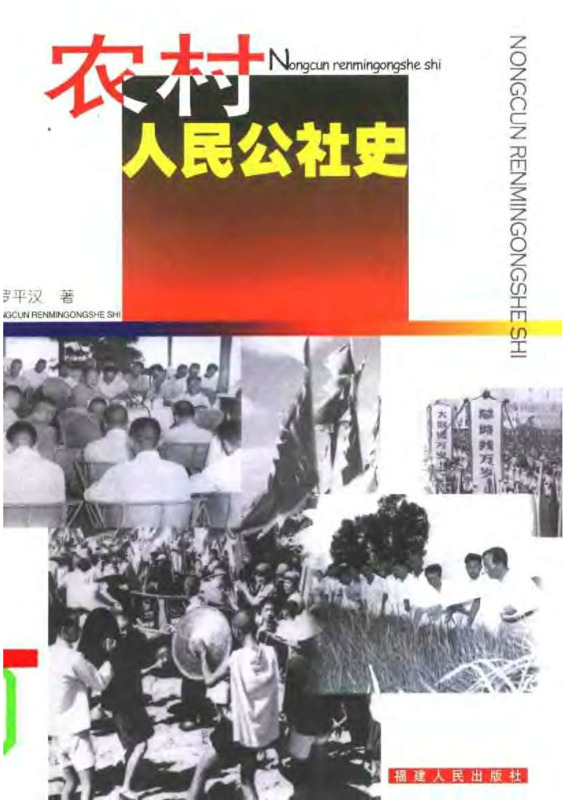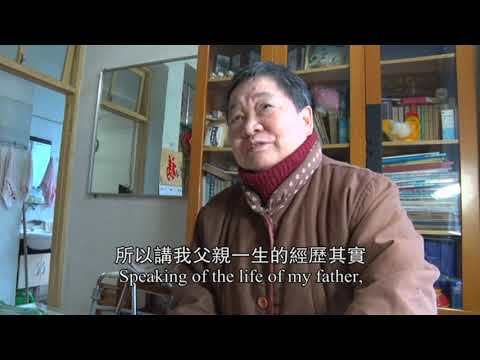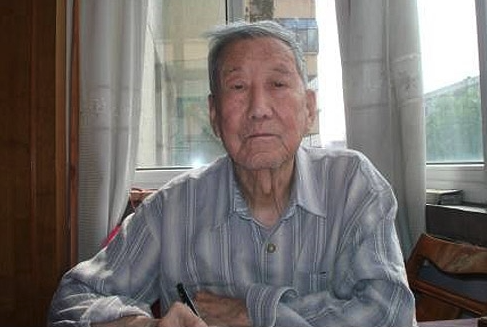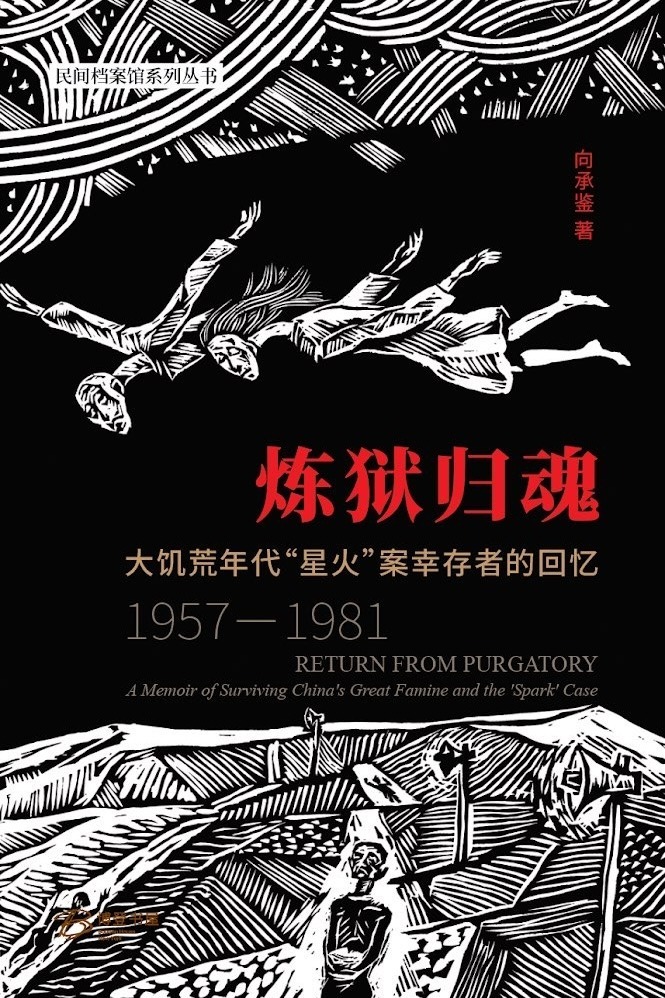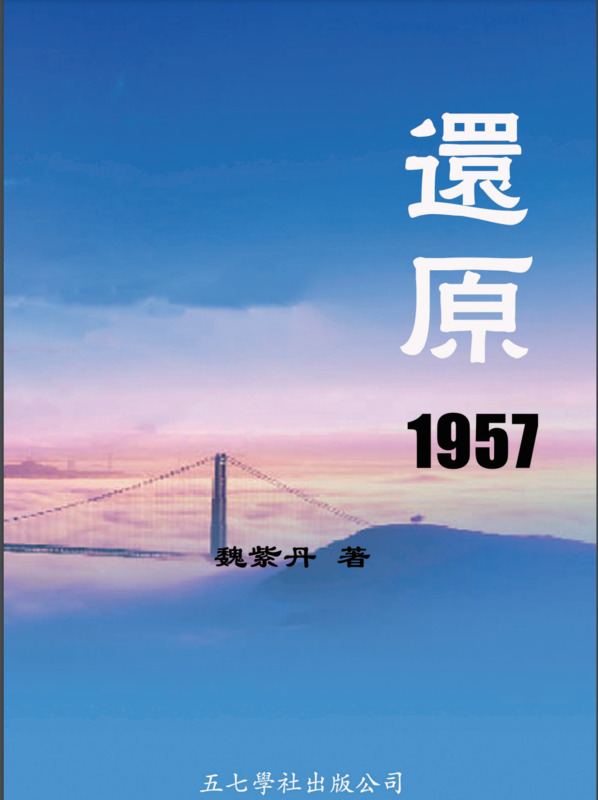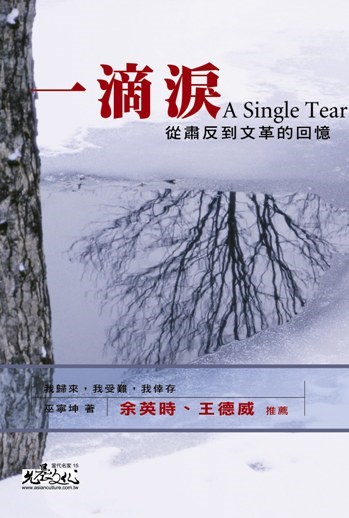Explore the collection
Showing 31 items in the collection
31 items
Book
Blood Chronicle: From the Anti-Rightist Movement to the Cultural Revolution
The author of this book, Kong Lingping, who lives in Chongqing, was labeled as a rightist in his youth. He has lived through all the political movements of the Chinese Communist Party (CCP). This book is based on the author's own experience, from birth to 2009.
Book
China's "Left Scourge"
The author of this book, Lu Jianhua (pen name Wen Lu), was a former member of the Chinese Academy of Social Sciences who published this book in 1993. He was sentenced to 20 years in prison in 2005 for "allegedly leaking state secrets" in connection with the "espionage case" involving journalist Cheng Xiang.
Book
Chronicle of Jiabiangou
Jiabiangou was a labor reform farm in Jiuquan County, Gansu Province, where "rightist" prisoners were held. October 1957, nearly 3,000 educated people were detained there. In October 1961, when the higher-ups corrected the "left-leaning" mistakes of the Gansu Provincial Party Committee and began repatriating the rightist prisoners, less than half had survived.
Writer Yang Xianhui spent five years interviewing more than a hundred people and brought to light the truth that had been sealed for more than forty years. Originally published by Tianjin Ancient Books Publishing House in 2002, this book also includes other short and medium-sized stories by Yang Xianhui.
Film and Video
Chronicle of Western Liaoning, A
In 1959, in the desolate Lingyuan area in the western part of Liaoning Province, a group of intellectual rightists from the Shenyang University arrived. There, they were to labor and be reformed alongside criminal prisoners in the prison, while digging mines to build railroads. How did the Communist Party reform the intellectuals? What kind of encounters did these rightist intellectuals go through? Hu Jie's camera restores this history.
Film and Video
East Wind State Farm
In 1957, two hundred teachers, students, and cadres from Kunming, Yunnan were among the hundreds of thousands of Chinese people labeled as “Rightists” for criticizing the Chinese Communist Party. They were sent to the East Wind State Farm, located in Mi-le County in Yunnan, for 21 years of “thought reform” in the countryside. These inmates witnessed the policies of the Great Leap Forward first-hand: they took part in deforestation, agricultural, and industrial projects in the countryside, which precipitated the Great Famine. Later, during the Cultural Revolution, their camp was visited by large groups of youths “sent down” from the cities, who worked on the farm with the “Rightists.” In 1978, these “Rightists” were finally rehabilitated and allowed to leave.
This documentary examines the policies and campaigns of the Maoist era through the eyes of those who were persecuted and exiled. Director Hu Jie pieces together this long and complex story through collecting dozens of extensive interviews with inmates as well as staff who served through decades of the camp’s existence. These people’s vivid memories and personal accounts shed light on the harrowing lifestyle of not only the two hundred “Rightists” of East Wind State Farm, but also the scores of dissidents and youths who experienced the Great Leap Forward and the Cultural Revolution.
Book
Experience: My 1957
Born in 1932, He Fengming and her husband Wang Jingchao were both labeled "rightists" during their work at the Gansu Daily Newspaper. In late April 1958, they were sent down to work at the Anxi Farm in Jiuquan. Her husband was sent to the famed Jibiangou Farm, where he died of starvation during the famine of 1960, but she survived. In order to refuse to forget, she spent ten years writing a 400,000-dollar self-narrative, *Experience - My 1957*. The book was published by Dunhuang Literary Publishing House in 2001.
Book
Gu Zhun Diary
This book contains the only three surviving diaries of Gu Zhun: one from October 1959 to January 1960 when he was exile to work in a labor camp in Shangcheng, Henan Province, one from October 1969 to September 1971 when he was sent to work in the May Seventh Cadre School in Xi County, Henan Province, and one from October 1972 to October 1974 when he returned to Beijing. The first two diaries, written during the Great Famine and the Cultural Revolution, record the tragedies Gu Zhun witnessed during the Great Famine as well as his own endurance of hunger, and how he underwent repeated punishment and ideological education as a Rightist. The third diary is a simple record of his life, but it shows that Gu Zhun spent the last two years of his life almost exclusively in reading, translating and writing. Since he personally experienced the Anti-Rightist Campaign, the Great Famine, and the Cultural Revolution, these three diaries are considered a valuable source of information about these historical events. In addition to Gu Zhun's diary, the book includes Gu Zhun's translation manuscript of a chapter on Christianity in English political scientist George Catlin’s book *A History of Political Philosophers* published in 1939. The book also includes his last letter to his sixth brother Chen Minzhi, several articles by other people commemorating Gu Zhun, and interviews with Gu Zhun's close friends. The book was published by the Economic Daily Press in 1997.
Book
History of the Rural People's Commune
The author of this book, Luo Pinghan, is a native of Anhua County, Hunan Province. He graduated from the Party History Department of Renmin University of China and served as director and professor of the Party History Teaching and Research Department of the Party School of the Central Committee of the Communist Party of China. This book was published by Fujian People's Publishing House in 2003.
The book is divided into nine chapters, narrating the history of the people's communes from the perspective of an orthodox view of historical development. The time nodes selected by the author include the rise, tide, adjustment, repetition, retreat, and disintegration of the Great Leap Forward. With Mao Zedong's affirmation, the system of people's communes was rapidly promoted across the country in 1958. At that time, the people's commune was both a production organization and a grassroots political power. Its rise and fanatical development are closely related to the subsequent Great Famine.
As a scholar within the system, the author’s view of history also belongs to the orthodox ideology. Although this book is narrated from the official ideology of the CCP, it uses rich and detailed historical materials to comprehensively and systematically introduce the history of the People's Communes, giving it a reference value for a comprehensive understanding of this movement.
电影及视频
In Search of Lin Zhao's Soul
Hu Jie narrates the life of Lin Zhao, a Christian dissident who was condemned as a Rightist in the late 1950s and executed during the Cultural Revolution. Prior to becoming a mentcritic of the government, Lin Zhao was an ardent believer of communism. She demonstrated talent in writing and speaking as a star student in Peking University. However, after criticizing the government in 1957 during the Hundred Flowers Campaign, she was cast as anti-revolutionary. Despite the government’s attempts to silence her, Lin Zhao continued to speak and write publicly, including contributing two epic poems to Spark, an underground student-run journal. In 1960, she was arrested, and despite being released briefly in 1962, spent the rest of her life behind bars, under extremely poor living conditions. Nevertheless, she continued to write in prison, sometimes with her blood. In 1968, at the age of 36, she was executed by a firing squad.
In this documentary, Hu Jie showcases many of Lin Zhao’s surviving writings and poetry. These pieces often contain criticisms of the communist regime, as well as commentary on policy issues pertaining to labor and land reform. In making this film, Hu Jie traveled around China to interview friends and associates of Lin Zhao, who knew her as a student, activist, or prisoner. This documentary includes excerpts from interviews with them, which inform us about Lin Zhao’s personality and motivations.
This documentary has contributed to a widespread revival of interest in Lin Zhao, who had almost become a forgotten figure until the film’s appearance.
Book
In Search of My Homeland
“In Search of My Homeland” is a collection of essays in three volumes written by Gao Ertai during his exile abroad. In this book, Gao looks back on his life. From his hometown of Gaochun, a small town in Jiangsu Province, to Suzhou, then to Lanzhou, Jiuquan, Dunhuang, Beijing, Chengdu, and the United States, Gao has undergone tremendous suffering, lost his home and family, and finally had to go into exile in a foreign country. Even though the work is widely regarded as having great literary merit, Gao uses real names and places, which makes the work a valuable historical document, especially for describing the Great Famine, and the brutal suppression of intellectual life during the Cultural Revolution at the Dunhuang research academy, which is one of China's most prestigious cultural institutions.
In an [interview](https://web.archive.org/web/20240130211408/https://www.aisixiang.com/data/80804.html), Gao explained why he wrote the book: "Searching for my homeland is nothing but searching for meaning.... Life is short and small, and its meaning can only be rooted in the external world and in the long history. My sense of drift and meaninglessness, that is, a feeling that the world has no order, history has no logic, and the individual has no home, seems to be a kind of destiny. My writing is nothing but a resistance to this destiny."
In 2004, a censored version of the first two volumes of this book was published by Huacheng Publishing House in Guangzhou; in 2011, an updated version was published by Beijing October Arts and Literature Publishing House, but still censored. The version uploaded to our archive is the traditional Chinese version of the complete three volumes published by Taiwan INK Publishing House in 2009.
Film and Video
Jiabiangou Elegy: Life and Death of the Rightists
A five-part documentary by the filmmaker and feminist scholar Ai Xiaoming on the persecution of inmates at the Jiabiangou labor camp in Jiuquan, Gansu province, where more than 2,000 people died. The movie includes interviews with the few remaining survivors and documents efforts to commemorate the dead. The director interviewed survivors of Jiabiangou and the children of the victims and listened to their stories about the past; she also found former correctional officers and their descendants to understand the causes of labor camps and the Great Famine from different angles.
Shot by Ai and a team of volunteers, the film presents the conflict between the preservation and destruction of memory.
Book
Journey of Grace, The
Li Jinghang, a native of Tianshui City, Gansu Province, 1922-2016, graduated from the Mathematics Department of the Northwest Normal College in 1949. In the fall of the same year, he was employed as a mathematics teacher at Tianshui No. 1 Middle School. In 1957, he was wrongly classified as a Rightist and sent to Jiuquan, Gansu Province to be reeducated through labor for nearly three years; in 1960, he resumed his work as a teacher at Tianshui No. 1 Middle School. In 1962, he removed his hat as a Rightist. He was rehabilitated in 1978. In 1980, he was transferred to Tianshui Teachers' College (which was upgraded to an undergraduate institution in 2000). After retiring in the fall of 1987, he joined the Church to serve full-time.
In 1957, Li Jinghang was labeled a rightist and sent to Jiabiangou for re-education through labor. In 1960, he was transferred to the Mingshuihe Farm in Gaotai, where the conditions were even worse, and he was subjected to a great deal of torture and abuse. The fourth chapter of his autobiography, "Chronicle of the bitter life in Jiabiangou," and the fifth chapter, "Chronicle of the life after returning home," are written about his bitter experience in Jiabiangou. From this, we can see the glory of humanity and the power of faith in the midst of suffering. This book was published by a Hong Kong Tianma Book Company Limited in 2003, with a print run of 2,000 copies, and reprinted once in 2004.
Book
Lin Zhao: No Longer Forgotten
This book contains a number of articles in memory of Lin Zhao. It concerns the death of Lin Zhao as well as Lin Zhao's love, pursuits, and disillusionment. This book was published by Changjiang Literature and Art Publishing House in 2000.
Book
Mao in Power (1949-1976)
The author of this book, Shan Shaojie, is a scholar from mainland China. For several years, he wrote this book from an independent position. Former political secretary of Mao Zedong, Li Rui, and Princeton University professor, Yu Yingshi, wrote the foreword for this book. In addition to a systematic account of the Maoist era, Shan Shaojie's book "Mao in Power" emphasizes that almost all members of the Communist Party's highest decision-making echelons, with the exception of Mao Zedong, made efforts, in varying degrees and successively, to stop Mao's insanity. Moreover, they took turns to resist and ultimately to leave Mao alone, but did not really stop Mao's madness. This book was published by Linking Publishing in 2001 and has been reprinted several times.
Book
Mao: The Unknown Story
This book presents the dramatic life of Mao Zedong, revealing a wealth of unheard-of facts: why Mao joined the Communist Party, how he came to sit at the top of the Chinese Communist Party, and how he seized China step by step. Writers Jung Chang and her husband Jon Halliday took ten years to complete this book, interviewing hundreds of Mao's relatives and friends, Chinese and foreign informants and witnesses who worked and interacted with Mao as well as dignitaries from various countries.
Purchase link:https://www.amazon.com/Mao-Story-Jung-Chang/dp/0679746323.
Film and Video
Memory of Lin Zhao
Independent director Tiger Temple began shooting this film in 2010 and completed it in 2012, with subsequent revisions. The film features interviews with Lin Zhao's former lover Gan Cui as well as interviews with several independent scholars such as Qian Liqun and Cui Weiping. It is a powerful addition to Lin Zhao's memory. This film was selected as one of the top 20 finalists in the 2012 Sunshine Chinese Documentary Awards.
Book
Personal experiences of political movements
This book is a collection of many authors, most of whom were former senior officials of the Communist Party of China, such as Li Rui, Xiao Ke and others. Through the author's recollections, we can learn about the political movements of the Mao Zedong era, including the Cultural Revolution, the Anti-Rightist Movement, etc., as well as the details of many unjust cases, such as the Hu Feng case, which is quite convincing. This book was published by the Central Compilation and Translation Bureau Press in mainland China in 1998.
book
Return of the Soul from Purgatory: Memoirs of a Survivor of the "Sparks" Case from the Great Famine Era
In 1960, a group of faculty and students from Lanzhou University, who had been labeled Rightists and sent down to rural areas in Tianshui, Gansu, personally experienced the Great Famine. They self-published <i>Spark</i> magazine to expose and criticize the totalitarian rule that led to this catastrophe.<i>Spark</i> only published one issue before its participants were arrested and labeled as a counterrevolutionary group. Many were sentenced to long prison terms, and some were even executed. <a href=“http://108.160.154.72/s/china-unofficial/item/1759#lg=1&slide=0”>The first issue of <i>Spark</i> and more information about the "Spark Case" can be read here</a>.
<i>Return from Purgatory: A Survivor’s Memoir of the ‘Spark Case’ in the Great Famine Years (1957–1981)</i> is the autobiography of Xiang Chengjian, a key participant in <i>Spark</i> magazine. At the time, he and another student were responsible for printing the first issue, and he contributed six articles to <i>Spark</i>. Due to his involvement, he was sentenced to 18 years in prison for his role in the Spark case and was not rehabilitated until the early 1980s.
This memoir is divided into three sections, with a total of thirteen chapters spanning over 350,000 characters. It documents Xiang’s journey from being labeled a Rightist and sent to perform forced labor, to his arrest and 19-year imprisonment for his involvement in <i>Spark</i>, and finally to his struggle for rehabilitation and efforts to rebuild his life after release. In the book’s preface, scholar Ai Xiaoming offers the following assessment:
"Xiang Chengjian’s memoir holds significant value for the study of the intellectual history of contemporary China. First, it serves as another important testimony of the “Spark Case”, following Tan Chanxue’s memoir <i><a href=“”>Sparks: A Chronicle of the Rightist Counter-Revolutionary Group at Lanzhou University</a></i>, making it a crucial historical document on this act of resistance. The author reconstructs the social context before and after the case and describes how the young intellectuals behind <i>Spark</i> bravely challenged totalitarian rule. Second, the book provides a detailed account of labor camps in western China, with the author documenting his 18 years of forced labor in Gansu and Qinghai, unveiling a western chapter of China’s Gulag system. Third, it is a deeply personal intellectual history of a resister, showing the immense suffering, trials of life and death, and personal resilience under the crushing force of state violence."
The book’s appendix includes Xiang Chengjian’s six articles for <i>Spark</i>, an in-depth investigative report on him by journalist Jiang Xue, and a chronological record of the Spark Case compiled by Ai Xiaoming.
<i>Return from Purgatory</i> is published by Borden Press in New York and is the first book in the “People’s Archives Series”, published by the China Unofficial Archives. The author, Xiang Chengjian, has generously authorized the archive to share the book’s digital edition. Readers are encouraged to purchase the book to support the author and publisher.
Book
Revisiting 1957
<i>Revisiting 1957</i> is not just about the history of the Anti-Rightist Campaign but is also a theoretical reflection on that history. Written by Wei Zidan (the penname for Wei Liyan), the book has three sections: upper, in which the author discusses philosophical problems of the campaign; middle, in which he discusses the origins of the campaign; and lower, which contains his thoughts on lessons for the future. In Wei's view, the people who were declared rightists stood up for freedom of speech. The campaign, therefore, was an assault on freedom of expression and resulted in a human rights catastrophe for China. The book also has an eleven-part appendix with reflections on miscellaneous events.
Wei Zidan was born in Henan Province in 1933 and was a teacher in the Anyang Middle School. He himself was labeled a rightist and brings a unique insider's account of the movement but unlike some personal accounts of suffering, Wei also brings a more analytical approach to the issue.
After moving to the United States in his later years, he collected information and found the freedom to complete this book. Published in Hong Kong in 2013 by the May 7 Society Press.
